
Max Cage is the heroic alter ago of the mild-mannered reviewer and commentator of comics, crime and all manner of pulp. He knows you have better things to do than read his musings but can’t imagine exactly what that could be.
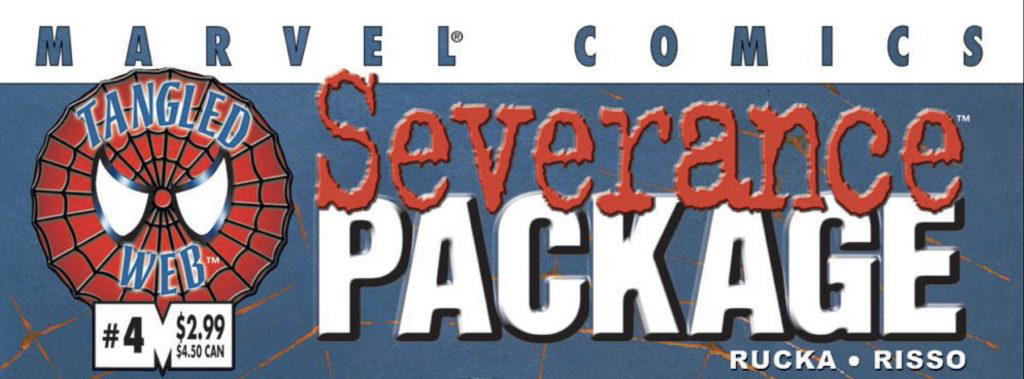
Back in 2001, a yesterday that is suddenly over twenty years in the past and an entire lifetime ago, Marvel Comics readers were treated to a surprisingly special title featuring — yet decidedly not featuring — Spider-Man. The cool concept here was that they would tell stories about people in Spider-Man’s orbit, or more specifically small stories about the overlooked and forgotten people affected by Spider-Man — caught in his web, as it were. Side stories that would be more mature than what could be found in the mainstream titles, personal dramas delivered by creative types often considered unusual or daring choices at the time.
It’s surprising to think of it now, but Marvel did take chances a few times during their evolution. 2001 was during the heady ‘try anything, try everything’ days of Joe Quesada’s “nuMarvel” (as I often saw it referred at the time), the early years of his tenure as Editor-In-Chief when bold experiments and big creative swings were the rule of the day.
The comic was called Spider-Man’s Tangled Web, or maybe it was Tangled Web of Spider-Man, and it lasted 22 issues — not bad for an anthology book, always a hard sell on the comics racks, and this one was directed at a niche audience. Plus it was a comic that despite the title would not actually have Spider-Man in it, no less!

And Tangled Web delivered! The talent on display in this series is exceptional, usually pairing highly respected veterans like Bruce Jones and Lee Weeks in the Gentlemen’s Agreement story that ran in issues 7-10, or special outings like the Darwyn Cooke & Jay Bone Open All Night and ‘Twas the Fight Before Christmas seasonal specials. I would have enjoyed a few more entries from indie-scene types and while we did get a Paul Pope story in issue 15 (The Collaborator) and a Ted McKeever story in 18 (Alphabet City), for the most part that wasn’t the anthology’s remit.
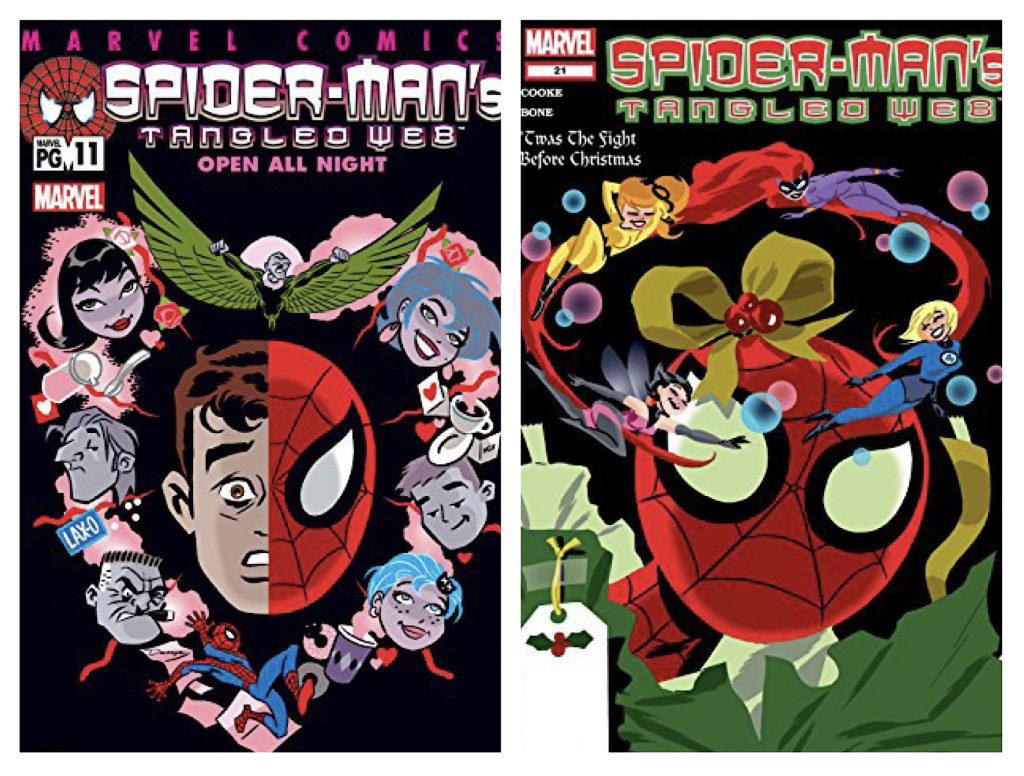
The story in Tangled Web #4 from 2001, is Severance Package and this issue is a rare straight-crime entry in the series. Marvel handed this issue off to crime novelist Greg Rucka, who had already established a name for himself writing Detective Comics by then and who has since comfortably settled into a lengthy and highly respected comics-writing career, while remaining a consistent name on crime fiction favorites lists, particularly with his Atticus Kodiak crime/adventure series. Recommended!

Paired with Greg Rucka is Argentine comics artist Eduardo Risso, who has become an adored favorite of mine, known for his exaggerated noir style replete with stark shadows, curvy women (alternately weeping and pouting), and all the glorious cartoony trimmings. I’ve been addicted to Risso’s art since it came to my attention with his critically acclaimed 100 Bullets, a collaboration with Brian Azzarello and sure to be discussed further in this column at some future point! Seek out that, or some of his other great stuff, like his work with fellow Argentine, writer Carlos Trillo — Borderline or Vampire Boy!
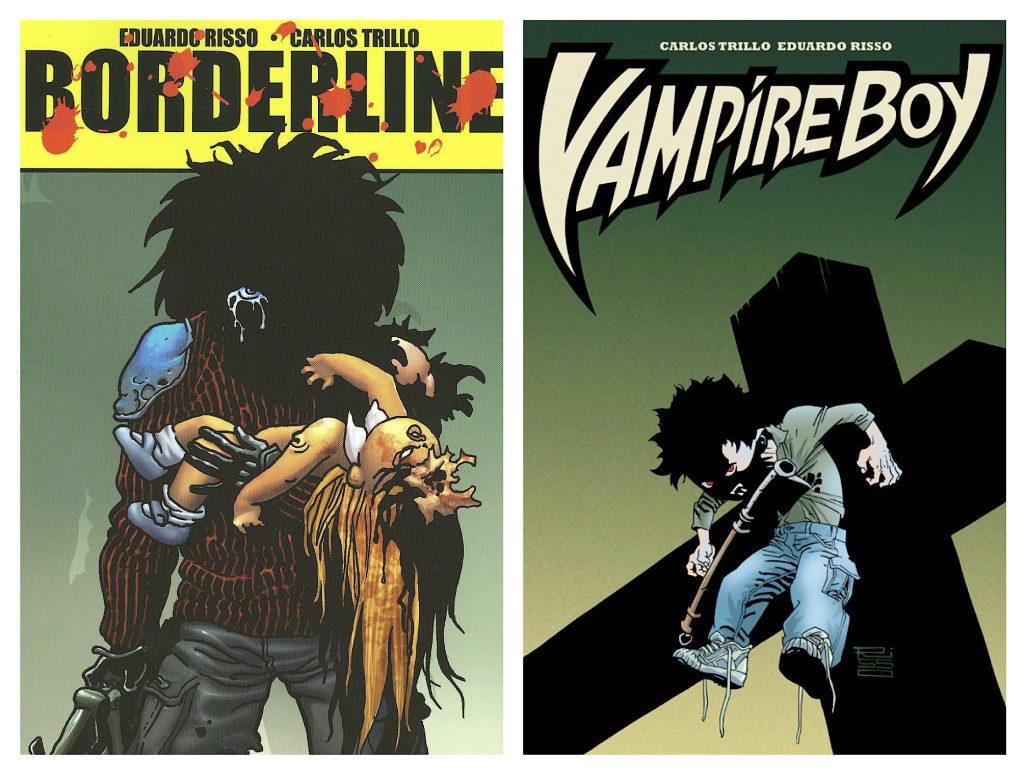
So, back to Severance Package. The story is simple — achingly so. We begin with a phone call in the night; it’s work, something I’m all too familiar with, having long lived a life that includes certain 24-hour on-call responsibilities. Right here, a lot of us workin’ stiffs can identify and empathize with with our protagonist Tom Cochrane, a middle-management schlub, who’s interrupted to take a work call while brushing his teeth for bed.
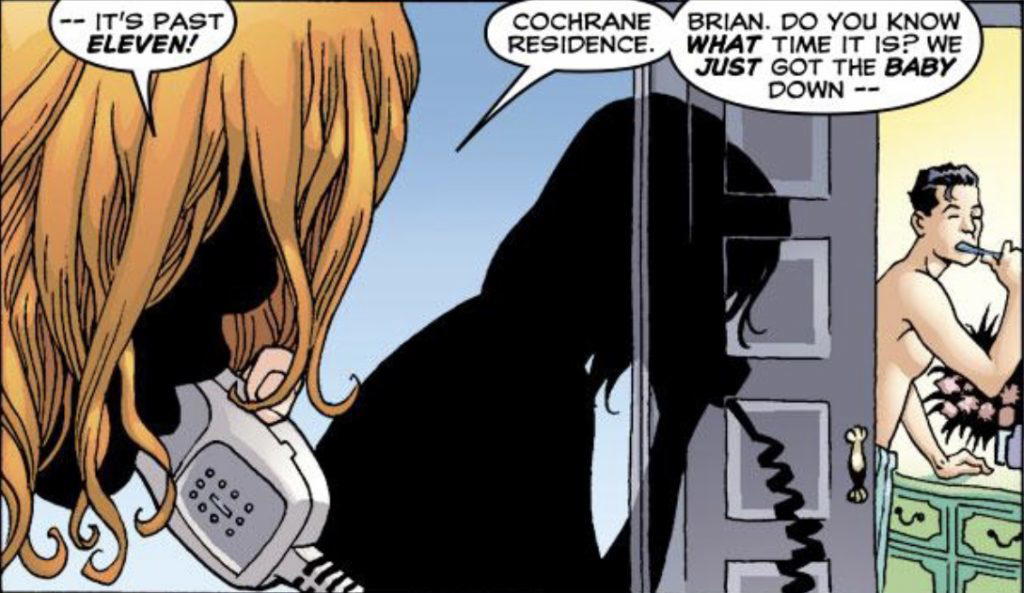
Like the master storyteller he is, Rucka has purposely gotten us to see Tom sympathetically in just a few panels, showing him to be relatable, just a guy, a little like me and maybe a little like you. As we start to learn the differences from our stories and Tom’s, the sad noir tale unfolds; Tom’s middle-management gig is planning crimes for the Kingpin! And woah, that was a bad late-night phone call — Spider-Man interfered, screwed up a job, things went sideways.
The Boss wants to see you.
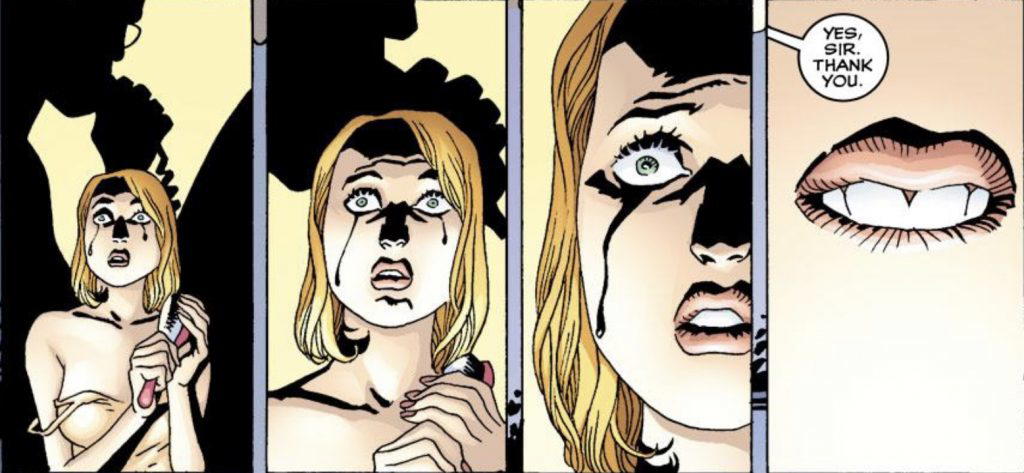
That’s the setup, that’s the story and and wow, it delivers the noir goodness! Tom has long ago accepted that this could one day be his fate and he is stoic to a fault. Shelly, the wife he will kiss goodby forever, ping-pongs between various points on the classic stages of grief list. She is heartbroken! She knew this could always be a possibility, but never expected this day (night) to come. How could she? Tom had to have reassured her many times. Where Tom survives on that razor’s edge by regularly running him thumb across it to remind him of the sharpness, Shelly’s survival depended on pretending it wasn’t there.

In fact, Rucka really lets this section of the story breathe, as Tom uses his last hour at home to shower, shave and put on his new Armani suit. He takes his time, he’s fastidious. This morning ritual, down to the fresh mug of coffee and the kiss goodbye is all preparation for what’s to come. With ritual comes reassurance, even if it’s false.
Next comes the Green Mile, as Tom is chauffeured from the suburbs to Midtown, garish colors and cold lights reflected everywhere, further reinforcing the worlds-apart differences from the soft, warm home he’s left. Again Rucka is reserved with his script, keeping his words off the page and giving Risso tremendous room to do his stunning art thing and build atmosphere. I can just about smell Tom’s aftershave in the quiet car. And Rucka is almost nonchalant as a page-turn cranks up the crime-noir quotient still further (no spoilers!).
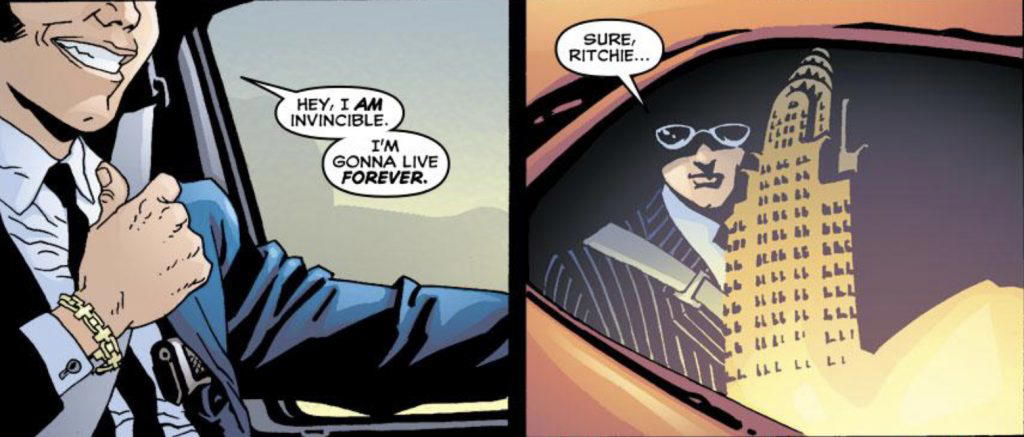
Severance Package is a brilliantly quiet 22 pages of fatalism and noir storytelling to make your toes curl. A survey of some of my favorite moments begin with the phone call. I am a sucker for a line of dialogue with that classic Noir Alley on TCM feel and Rucka does not disappoint!
“It was nice knowing you too, Brian. My best to your family.”

Woah, this was a bad fuckup. Is Brian calling in a warning? I mean, someone’s obviously going to die… is it Tom? Shit, it’s gotta be Tom. This is that dreaded phone call. Oh, the fatalism!
Shelly, the happy wife in the last happy moments of her happy life, overhears; probably it’s something in his voice that tweaks her. They’ve been married a while, she has wifely sensors aplenty, and one was just tripped. She looks up from brushing her hair, the surprise on her face already turning to worry. The couple share a moment as she catches up, catches on, the implications hitting home.
Her husband is about to leave the house and he will not come home ever again.
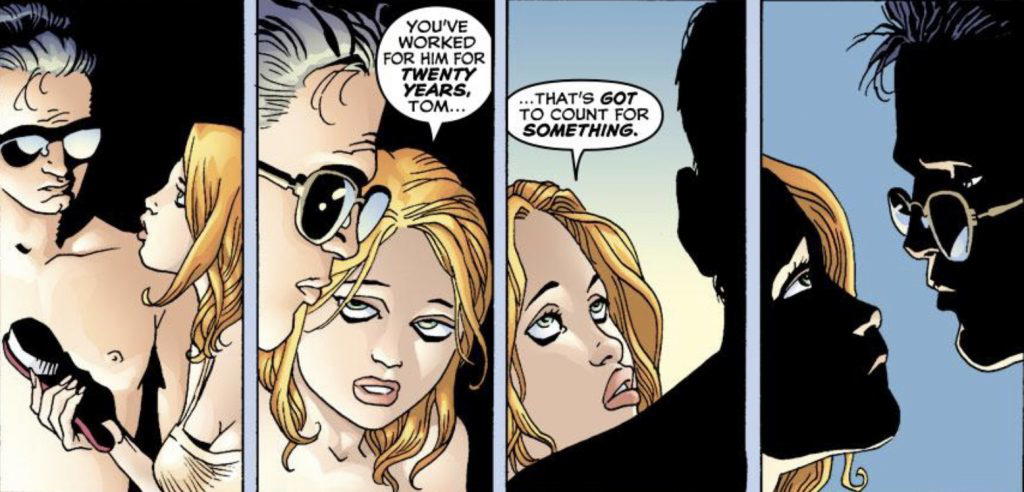
In the silent panel concluding this moment we see Tom’s eyes for one of a very few times in the story, as they meet his wife’s own and they jointly comprehend their doom. This is the last, fleeting moment of this definition of them as a couple, a unit, but also as individuals. This version of themselves is already gone. And even as this exchanged glance locks and holds, it is changing. The horror begins to seep in and nothing will ever be the same again. Eduardo Risso packs in tremendous emotional weight, leaning in to the opportunity that Rucka has offered for visual drama.
The power of this storytelling can’t be over-stated, because Rucka has written a series of scenes drenched in classic noir tropes and stitched them together into something that breaks no ground, but isn’t trying to. It’s an homage to noir styling. It’s a celebration of Risso’s art.
I am willing to bet that Rucka knew well in advance that Risso was doing the book, and knew his art style. Maybe he even requested him, I dunno, but he knew it was a singular style known to be fantastically, almost cartoonishly ‘film noir’ in tone. I believe Rucka wrote this script for that style, and he scripted in an almost cartoonishly noir fashion. The end result is brief and magical and not to be reproduced.
Another favorite moment comes again as we move with Tom deep into Fisk’s world. Even as Risso eased that first transition from the quiet shadows of the suburban evening to the sleazy neon nightlife of Midtown, this time it’s jarring. Tom’s elevator ride ends with a wash of color and light and unreality. It’s just one panel, but the sudden page-turn wash of roasted-tomato red with the corridor broken by pillars and under lit sculpture and black accent panels. There’s an instant of disorientation, an echo of what Tom must feel.
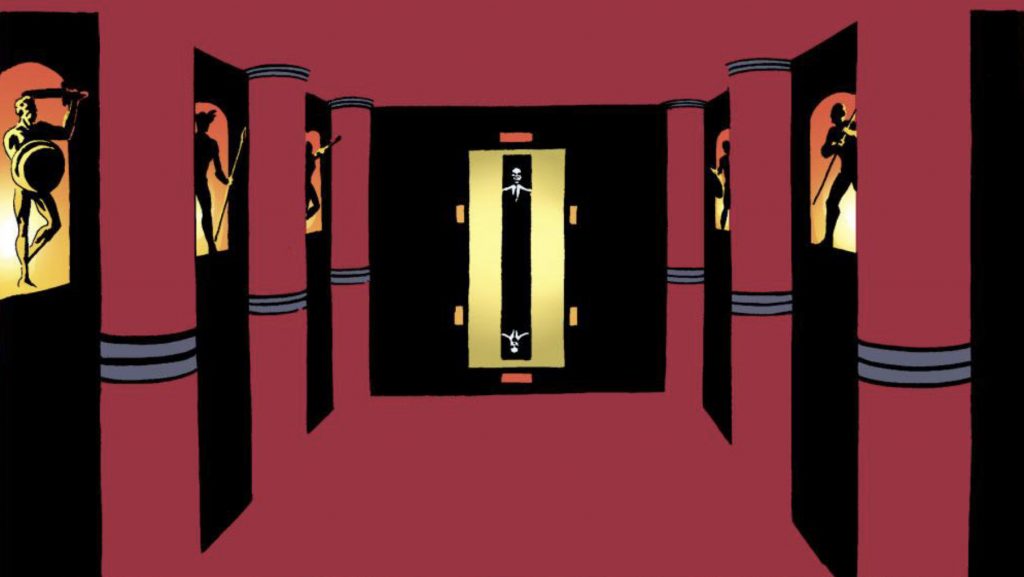
Then an overhead establishing shot positions us again but the discomfort remains. By design! Fisk’s inner office door is like that of a cathedral! He who comes before Fisk comes before power, indeed.
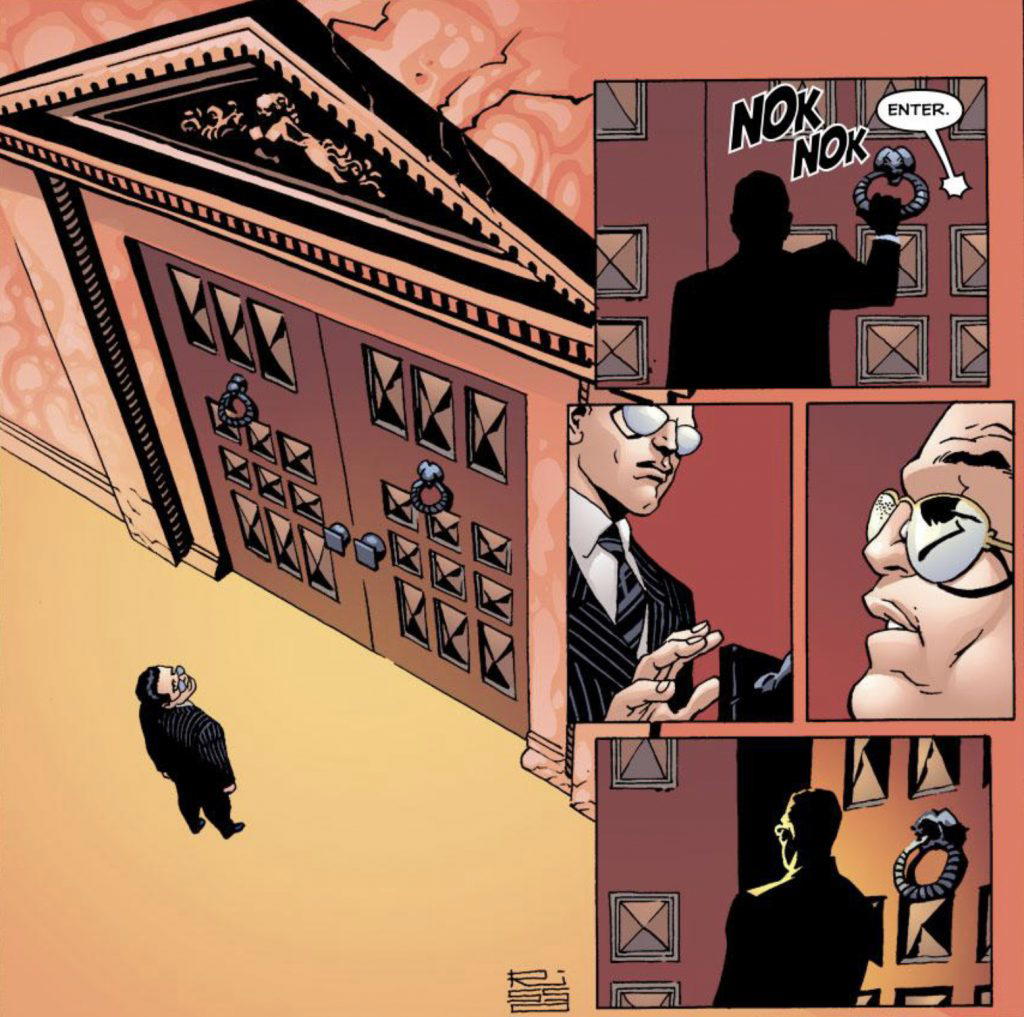
And then that panel of Tom, standing before an improbably massive Wilson Fisk, backlit by the lights of the city and just dripping with power. This is the first time we’re seeing him, though he’s been with us from page one, his menace looming over the story just as his physical bulk now dwarfs our doomed noir hero. Kingpin has gravity in this panel, he’s a criminal moon. Risso’s artistic signatures are on display; cartoony exaggeration, stark shadows and expressive silhouette work. Just look at Tom’s clenched fists! He’s holding on by a thread and all of that tension is there on the page.
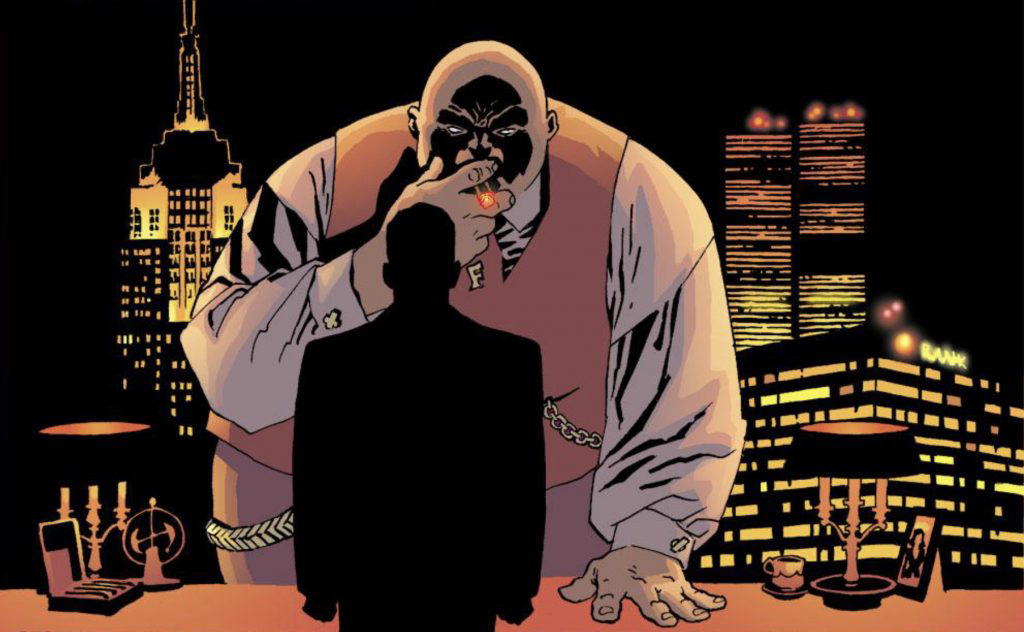
While Spider-Man has historically leaned toward street-level, crime-involved stories, he’s a decidedly colorful superhero and his world tends not to lend itself much to straight crime or dark noir tales. In Severance Package we’re afforded a rare view into Wilson Fisk’s approach to Human Resources. The next time my phone rings for an after-hours work issue, you bet I’ll be thanking my lucky stars that my employer is decidedly more merciful!
Should you wish to read this comic, you have options! Chase a print copy down through your local comics shop or eBay; this shouldn’t be hard to find or set you back much more than (literally) a few dollars. If the entire Tangled Web concept appeals to you, the collected editions are readily available as 4 softcover books (the story reviewed here appears in the first volume) or one beautiful oversized hardcover omnibus. Digitally, you’re in luck as the series is included the Marvel Unlimited subscription service and if you’re not a subscriber there’s always several Comixology/Kindle Comics options. Pick and choose, if you want to read just some of the entries, or go all-in for some solid comics reading!
Friends, I leave with all of us in much better positions than poor Tom Cochrane. And if you’re on call tonight, I wish you #nocalls!
Max Cage, 2022
Comics’ll Break Your Heart, for Shotgun Honey
COLLECTING: TANGLED WEB 1-4, SPIDER-MAN’S TANGLED WEB 5-22. Featuring the Severance Package storyline.

Max Cage is the heroic alter ago of the mild-mannered reviewer and commentator of comics, crime and all manner of pulp. He knows you have better things to do than read his musings but can’t imagine exactly what that could be.